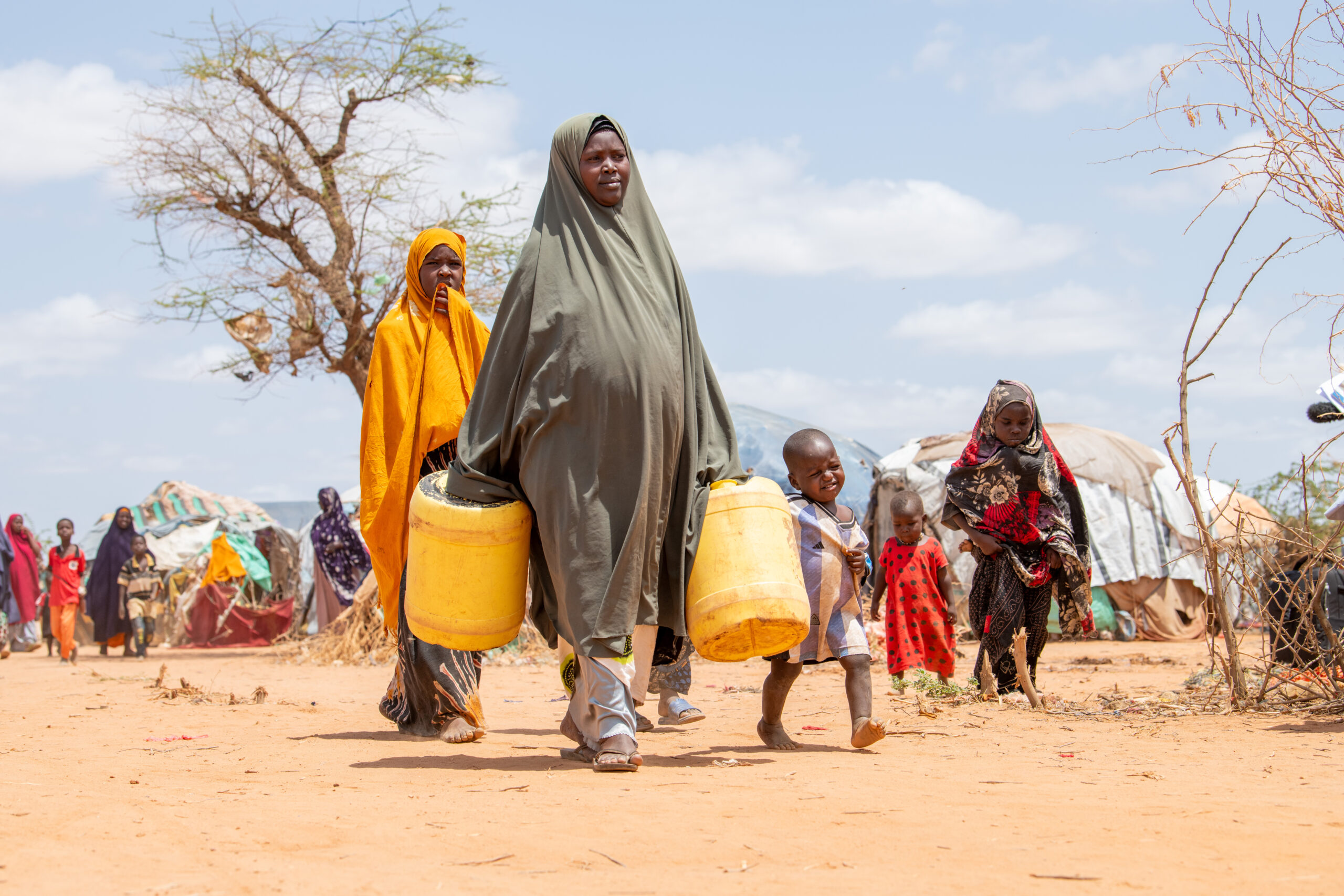In Kenya, UNHCR coordinates the planning and implementation of protection and targeted assistance programmes for refugees and asylum-seekers in partnership with the Government of Kenya and our NGO partners. The Department of Refugee Services (DRS) is the Government of Kenya’s entity entrusted with responsibility for refugee management.
In Kenya, UNHCR’s main protection activities are centered around safeguarding the legal rights of refugees, asylum-seekers and stateless persons. This involves legal assistance, advocacy, access to basic human rights, mental health and psychosocial support, and protection from violence and exploitation. UNHCR approaches this through the mainstreaming of protection services, ensuring specialized focus on child protection and community-based protection.
Women and children, who account for 74% of the total refugee population, are often the most vulnerable and are prioritized under UNHCR’s protection and assistance programmes. Refugee women are particularly vulnerable due to societal restrictions imposed by many cultures, and a sizable number of women and girls (as well as men and boys) are victims of gender-based violence (GBV).
When such cases are reported, UNHCR and our partners provide a comprehensive package of services, including medical treatment, psychosocial support, legal assistance, and safe shelter, if necessary. The support provided is meant to overcome the immediate effects of violence and to address the trauma and stigma associated with such incidents. UNHCR and our partners also implement a strategy to prevent GBV through awareness raising and targeted engagement with women, men, girls and boys.
UNHCR works with the Government of Kenya’s Department of Children’s Services and our partners to ensure the protection of refugee children in Kenya through comprehensive community-based programming. Unaccompanied children – children who are separated from both parents and from other adults who are responsible for their care by law or by custom – and separated children – those who are separated from both parents but under the case of a responsible adult – are prioritized by UNHCR to identify alternative care arrangements with host families and to provide for their immediate protection and assistance needs.
Whenever possible, family tracing with relatives is initiated and family reunification is facilitated in case of positive results. Regular follow-up is required to ensure that the services and support provided to refugee children at risk – whether they are unaccompanied, separated or living with their families – meet their needs and are in line with their best interests.
UNHCR and our partner, Refugee Consortium of Kenya (RCK), monitor detention facilities across the country to identify detained refugees and asylum-seekers, to follow-up with authorities to ensure they are treated properly, and to intervene to secure the release of those detained on immigration-related charges. When needed, refugees and asylum-seekers are provided free legal representation, either through RCK or legal aid providers.
UNHCR and RCK monitor border areas and flight routes to ensure that asylum-seekers have effective access to Kenyan territory and that they are not refouled; the principle of ‘non-refoulement’ and the right to seek asylum are the foundations of international protection for refugees, and UNHCR advocates with the Government of Kenya to improve the observance of these principles by relevant authorities.
UNHCR also provides technical support to the Government of Kenya on matters related to refugee protection and assistance with the aim helping to ensure effective refugee protection in Kenya in line with Kenyan law and international standards.
How can I make an appointment to meet with UNHCR or DRS?
Refugees and asylum-seekers can access protection information and available services, via UNHCR’s Help Site, or by emailing UNHCR on [email protected], or by calling our toll-free and multi-language Help Line on 1517.
Do refugees have to pay for registration, documentation or other services?
All services provided by UNHCR, government and non-governmental organizations working with refugees in Kenya are FREE OF CHARGE.
People may tell you that you should pay to add a new baby or schedule appointments; this is not correct as these services are free of charge. Refugees must not pay anyone for any services, and people asking for money are engaging in fraud and corruption. Refugees should be aware of scams offering resettlement or other services for a fee – these are NOT official programmes and will not provide you with the services you are seeking.
If you are unsure whether you have been approached by fraudulent actors you can contact UNHCR to seek confirmation.
What should I do if I have been approached or asked to pay for services?
Please visit our page on reporting fraud.

